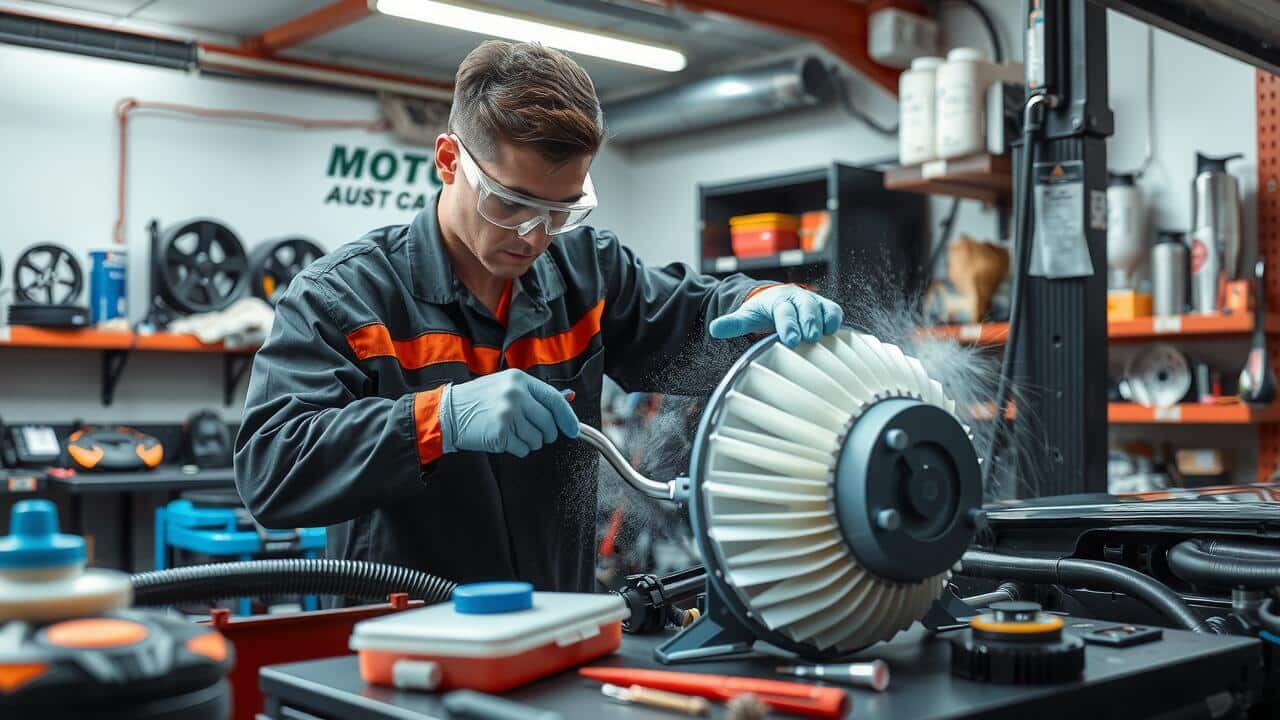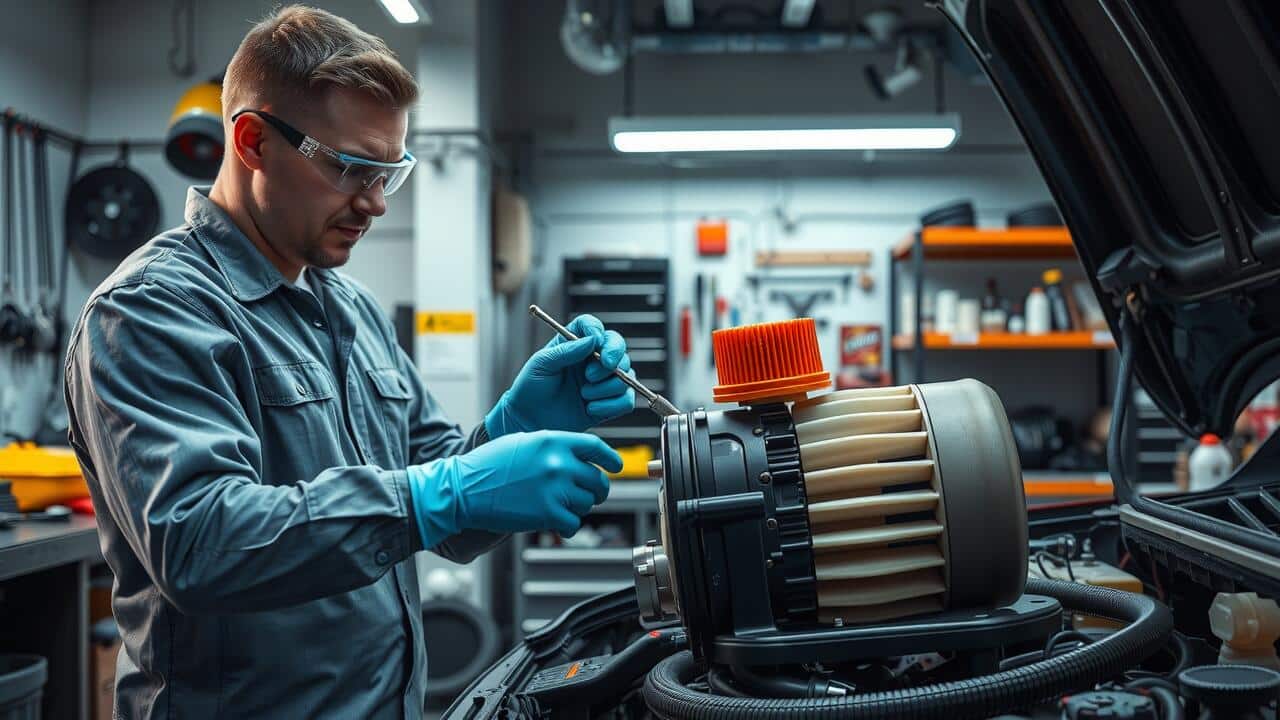
Table Of Contents
Frequency of Cleaning Your Blower Motor
Keeping your blower motor clean is essential for optimal performance and efficiency. Generally, it is recommended to inspect and clean the blower motor at least once a year, especially before the start of the heating or cooling season. Environmental factors can impact this frequency. For instance, homes situated in dust-prone areas may require more frequent blower motor cleaning in order to maintain peak functioning.
Regular maintenance helps avoid the accumulation of dirt and debris that can hinder airflow and reduce system efficiency. Scheduling blower motor cleaning in coordination with other HVAC maintenance tasks can make it easier to keep track of when services are due. This proactive approach often leads to fewer issues down the line and can extend the lifespan of your HVAC system.
Recommended Maintenance Schedule
Maintaining a regular schedule for blower motor cleaning ensures optimal performance and longevity of your HVAC system. Depending on the environment, many experts recommend scheduling a thorough cleaning at least once a year. If you have pets, smoke indoors, or live in a particularly dusty area, you might find it beneficial to clean your blower motor more frequently. Regular inspections can also help identify any potential issues before they escalate.
Blower motor cleaning in fall is often ideal, as it prepares your system for the rigorous demands of winter heating. Additionally, doing so in spring can set the stage for efficient cooling during the warmer months. Keeping track of these seasonal cleanings helps ensure that your blower motor operates smoothly when you need it most. Always consult your manufacturer’s recommendations for specific guidance tailored to your system.
Benefits of Regularly Servicing Your Blower Motor
Regular maintenance of your blower motor enhances its efficiency and lifespan. When dust and debris accumulate, they can obstruct airflow and strain the motor, leading to increased energy consumption. This not only raises utility bills but can also lead to premature wear and tear, resulting in costly repairs. Blower Motor Cleaning in a timely manner ensures that the unit operates at optimal performance levels, saving both money and time in the long run.
In addition to improved energy efficiency, regular servicing can help maintain indoor air quality. A clean blower motor reduces the likelihood of contaminants being circulated throughout your home. This can be particularly important for individuals with allergies or respiratory issues. Investing in Blower Motor Cleaning contributes to a healthier living environment while promoting the overall integrity of your HVAC system.
Long-Term Performance Advantages
Regular blower motor cleaning leads to enhanced efficiency and longevity of the system. A clean blower motor operates more smoothly, reducing wear and tear on its components. This improved performance can contribute to lower energy costs, as a clean motor does not have to work as hard to maintain optimal airflow.
Investing time in blower motor cleaning in your maintenance routine can prevent costly repairs down the line. By removing dirt and debris, you minimize the risk of overheating and other issues that can arise from neglect. Owners who prioritize this maintenance find their heating and cooling systems remain reliable over the years, creating a comfortable living environment.
Professional vs. DIY Cleaning
When it comes to blower motor cleaning, deciding between professional servicing and a DIY approach depends on your level of comfort and expertise. Professional technicians have the experience and tools tailored for this specific task. They can ensure that the cleaning process is thorough and that any underlying issues are properly addressed. Moreover, they often provide a warranty on their work, giving you peace of mind regarding the quality of the service performed.
On the other hand, DIY cleaning can be a cost-effective solution for those who enjoy hands-on maintenance. With the right tools and a clear guide, homeowners can accomplish blower motor cleaning in a safe and efficient manner. However, it is essential to follow instructions carefully and take necessary safety precautions. In some cases, a lack of knowledge or experience can lead to damaging the motor or voiding warranties. Therefore, weighing the pros and cons of both options is crucial before proceeding.
Weighing Your Options
When considering whether to tackle blower motor cleaning in a DIY fashion or to hire a professional, it’s essential to evaluate your own skills and comfort level with mechanical tasks. Some homeowners may find the process straightforward, particularly if they have experience with household maintenance. Gathering the right tools and following a clear guide can help make the job manageable. However, those less confident in their abilities may risk improper cleaning, which could potentially lead to further complications.
On the other hand, opting for professional blower motor cleaning in many cases guarantees a thorough job performed by someone with expertise. Professionals have access to specialized equipment and knowledge about best practices, reducing the likelihood of mistakes that can arise during a DIY attempt. Additionally, many service providers offer warranties or follow-up services that can provide further peace of mind. Balancing cost, convenience, and the desire for quality service will ultimately guide your decision on whether to go it alone or seek help.
FAQS
How often should I clean my blower motor?
It is generally recommended to clean your blower motor at least once a year, ideally during your regular HVAC maintenance schedule.
What are the benefits of regularly servicing my blower motor?
Regular servicing can improve the efficiency of your heating and cooling systems, extend the lifespan of the blower motor, and enhance overall indoor air quality.
Can I clean my blower motor myself, or should I hire a professional?
While DIY cleaning is possible for those with experience, hiring a professional is often recommended to ensure thorough cleaning and avoid damaging components.
What tools do I need to clean my blower motor if I choose to do it myself?
Basic tools like a screwdriver, vacuum with a brush attachment, and cleaning solutions suitable for electric motors are typically needed for DIY cleaning.
What signs indicate that my blower motor needs cleaning?
Signs include reduced airflow, unusual noises from the motor, increased energy bills, or the HVAC system not heating or cooling effectively.

